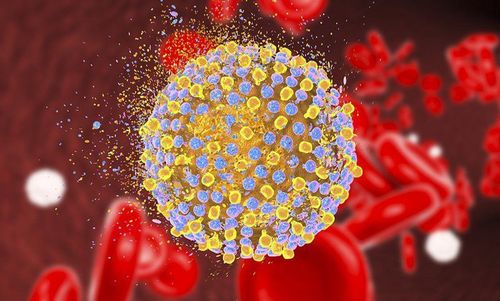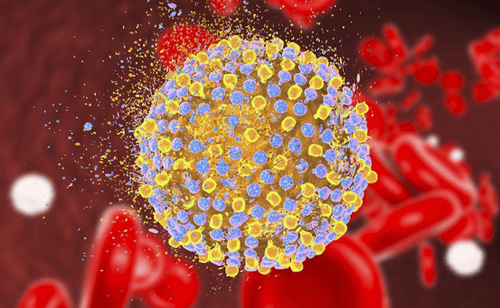This is an automatically translated article.
The article was professionally consulted by Specialist Doctor I Vo Thi Thuy Trang - Gastroenterologist, Department of Medical Examination & Internal Medicine - Vinmec Danang International Hospital.Besides hepatitis A, hepatitis B..., hepatitis E is also one of the serious liver problems, greatly affecting the health of patients. Notably, hepatitis E is an infectious disease, difficult to diagnose, and can lead to many dangerous complications.
1. What is Hepatitis E?
Hepatitis E is an inflammation of the liver caused by the hepatitis E virus. This is a single-stranded RNA virus consisting of 8 major genotypes. In which, viruses of genotype 1 and 2 are the main types that cause hepatitis E in humans, the rest are mostly caused by animals such as pigs, deer...2. Causes of Hepatitis E
Hepatitis E is a contagious disease. There are many animals here that cause hepatitis E infection, mainly through eating, when eating food or drinking water contaminated with hepatitis E virus, even a very small amount. The risk of hepatitis E infection is increased in areas with low sanitation and contaminated water sources.Animal feces or feces of people infected with hepatitis E can contaminate water sources leading to large-scale transmission of hepatitis E virus. Should eat cooked, drink boiling, especially animals living in the water environment such as clams, oysters, snails... to ensure eradication of disease-causing viruses, if any.
In addition, the hepatitis E virus can also be transmitted by blood. A pregnant woman with hepatitis E can pass it on to her unborn baby.

3. Symptoms of Hepatitis E
After being exposed to an infectious source for about 2-7 weeks, the patient will appear symptoms of hepatitis E such as:Jaundice, yellow eyes; Urine is dark in color; Fatigue, joint pain; Fever; Nausea; Anorexia; Stomachache. Symptoms of hepatitis E are often unclear, easily confused with the common cold, and some patients have no symptoms. Therefore, it is difficult to detect the disease.

4. How dangerous is hepatitis E?
Hepatitis E can go away on its own after a few weeks, but there are also cases where the hepatitis E virus attacks strongly, causing other dangerous complications such as serious liver damage, leading to cirrhosis, even death. liver failure and death. Among them, pregnant women are at a very high risk of complications.The mortality rate from hepatitis E in pregnant women in the last 3 months of pregnancy is as high as 25% (According to statistics of the World Health Organization). People with a history of chronic liver diseases, liver dysfunction, and people who have had a liver transplant are also at high risk of complications from hepatitis E.
About 10% of the hepatitis E virus becomes malignant , causing cirrhosis, liver failure. So far, there is no specific cure for hepatitis E. Therefore, the best way to protect health is to keep clean, eat well, drink boiled, and do not use contaminated water. If you see abnormal signs of the body, especially symptoms of jaundice, yellow eyes, you should go to medical facilities for examination and diagnosis as soon as possible, minimizing the possibility of complications. threaten the patient's life.

Please dial HOTLINE for more information or register for an appointment HERE. Download MyVinmec app to make appointments faster and to manage your bookings easily.














